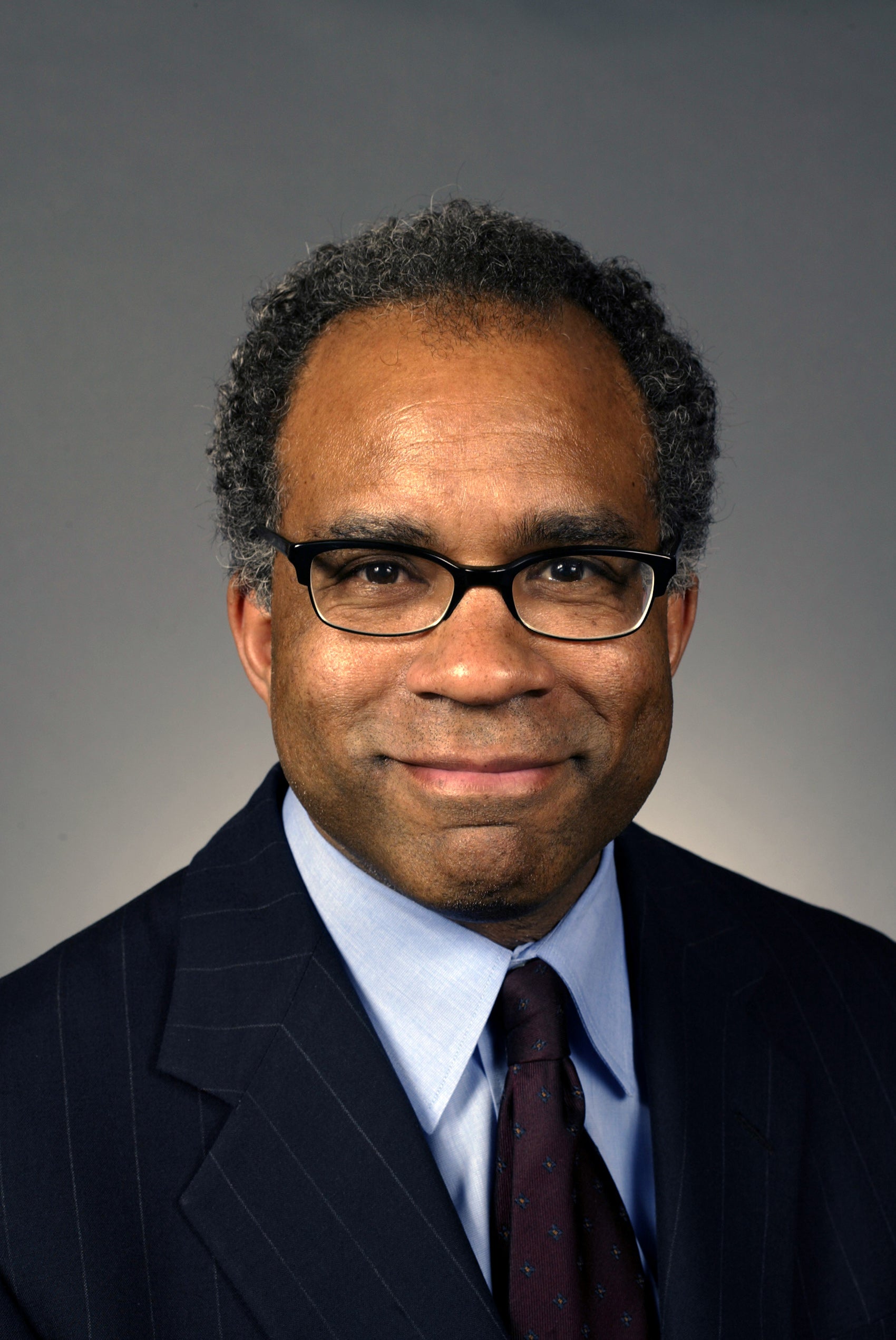The following op-ed written by Professor Randall Kennedy, “The big ‘what if,’ was published in the September 14, 2008, edition of the Washington Post.
I am a black man born in 1954, the year of Brown v. Board of Education. Fleeing the abuses of Jim Crow, my parents moved from South Carolina to Washington, D.C., later that decade. Tales of racial oppression and racial resistance were staples of conversation in our household. My father often spoke of watching Thurgood Marshall argue the case ( Rice v. Elmore) that invalidated the rule permitting only whites to vote in South Carolina’s Democratic primary. Memories of that story played a large part in producing the tears I shed on the evening Barack Obama won this year’s primary in the Palmetto State.
Related memories — the most haunting being our visit to a D.C. funeral home to pay last respects to Medgar Evers, the courageous head of the Mississipppi branch of the National Association for the Advancement of Colored People who was murdered by a segregationist — helped reduce me to tears, again, on the night the senator from Illinois accepted his party’s nomination as its candidate for president.
Never before have my emotions been so exercised by a political campaign. For one thing, never before has a candidate so fully challenged the many inhibitions that have prevented people of all races, including African Americans, from seriously envisioning presidential power in the hands of someone other than a white American. With intelligence, verve and elegance, Obama has opened the public mind to the idea of a black president and made that idea broadly attractive.
The senator’s progressive politics, cosmopolitan ethos and pragmatic style have turned me into an enthusiastic supporter, and I savor the prospect of his triumph. But I’m watching this election very closely as I teach a course about it this semester. And I know that the conclusion to this electoral drama is far from determined. Yes, political gravity would seem to favor the Democratic candidate after two terms of Republican control of the White House. Yet the possibility is very real: Barack Obama could lose.
If that happens, then what? How will I feel? How will other black Americans feel? How should people like me feel?
Much depends on what might underlie any potential defeat. In September 1960, Sen. John F. Kennedy, needing to allay anxieties about his religion in his quest to become the nation’s first Roman Catholic president, addressed a Protestant ministerial association in Texas. At the end of his speech, he declared that if he lost the election “on the real issues,” he would return to his seat in the Senate satisfied that he had been “judged fairly.” He also said, however, that if the outcome was determined by a religious bias that deprived 40 million Americans of the chance to become president on the day they were baptized, “then it is the whole nation that will be the loser . . . in the eyes of history, and in the eyes of our own people.”
Whether black onlookers believe that this election was decided “on the real issues” and that Obama was “judged fairly” will be shaped in part by future developments, including the nature of the campaign in its closing weeks (will race-baiting intensify?) and the demographics of the final voting tally (will people who have traditionally voted Democrat vote differently this time around?).
I anticipate that most black Americans will believe that an Obama defeat will have stemmed in substantial part from a prejudice that robbed 40 million Americans of the chance to become president on the day they were born black. They will of course understand that race wasn’t the only significant variable — that party affiliation, ideological proclivities, strategic choices and dumb luck also mattered. But deep in their bones, they will believe — and probably rightly — that race was a key element, that had the racial shoe been on the other foot — had John McCain been black and Obama white — the result would have been different.
This conclusion will be accompanied by bitter disappointment, and in some quarters, stark rage. In the early stages of the Obama campaign, his rival, Hillary Clinton, outpolled him among blacks in part because many didn’t believe that he stood a chance of prevailing. Then came Iowa. And the near-victory in New Hampshire. When blacks realized that Obama’s candidacy represented a serious drive for electoral power with an appreciable chance of success, they gravitated overwhelmingly to the Illinois senator.
Continue reading “The big ‘what if.'”
